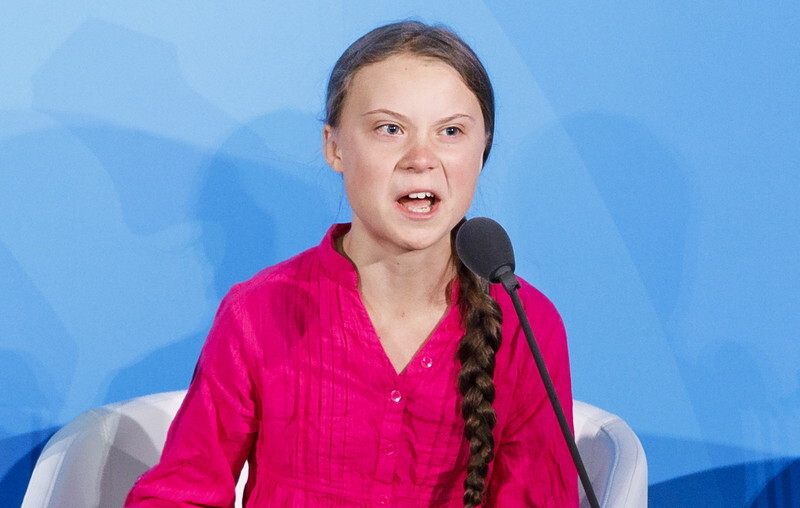hankyoreh
Links to other country sites 다른 나라 사이트 링크
S. Korea abandons international carbon neutrality declaration

South Korea, which has been criticized as one of the world’s four biggest “climate offenders,” has effectively abandoned a carbon neutrality declaration made by around 70 countries.
Carbon neutrality involves establishing measures to eliminate as many greenhouse gases as are discharged in order to keep net emissions at zero. The abandonment of this approach in South Korea’s climate crisis response measures appears poised to draw international condemnation.
The Ministry of Environment (MOE) announced on Feb. 5 that the 2050 Low-Carbon Society Vision Forum had submitted a review plan that day for its “2050 long-term low emission development strategy.” According to the Paris Agreement, all parties must develop such a strategy by this year. The core of each country’s strategy should concern plans for achieving a sustainable low-emission society by 2050 to meet the target of restricting the rise in the global average temperature to within two degrees based on scientists’ warnings. With 69 experts participating in seven subcommittees, the forum has held over 60 discussions since March 2019.
The review plan, which amounts to the draft version of the South Korean government plan, suggested five main options, ranging from a first option (maximum) that involves a 75% reduction of the 709.1 million tons of greenhouse gas emissions in 2017 by 2050 to a fifth option (minimum) with a 40% reduction.
The fifth option is similar to the climate change response plan announced by the South Korean government in October of last year. It involves reducing emissions by 24% from their 2017 levels by 2030 -- a rate that would make it difficult to meet the agreement’s recommendation to keep the temperature rise within two degrees. The first to third plans, with respective reduction rates of 75%, 69%, and 61%, would at least remain within the recommendation range. The government plans to hold additional discussions on the review plan before finalizing its decision, which is to be submitted to the UN Framework Convention on Climate Change by the end of the year.
Regarding the achievement of carbon neutrality, the forum only made reference to “targets that must be swiftly met” and the “need for continued wide-ranging societal discussions.” With the forum merely recognizing the need without addressing it through a target plan, critics said its attitude amounts to an abandonment of carbon neutrality.
At a UN Climate Action Summit in September of last year, 73 countries declared plans to achieve carbon neutrality at the national level. In an interview with the Hankyoreh that October, Minister of Environment Cho Myung-rae said, “We plan to promote a ‘net zero’ [carbon neutrality] declaration.” But the omission of such content from the draft is expected to spark harsh criticism both domestically and overseas.
By Park Ki-yong, staff reporter
Please direct comments or questions to [english@hani.co.kr]

Editorial・opinion
![[Editorial] Penalties for airing allegations against Korea’s first lady endanger free press [Editorial] Penalties for airing allegations against Korea’s first lady endanger free press](https://flexible.img.hani.co.kr/flexible/normal/500/300/imgdb/original/2024/0502/1817146398095106.jpg) [Editorial] Penalties for airing allegations against Korea’s first lady endanger free press
[Editorial] Penalties for airing allegations against Korea’s first lady endanger free press![[Editorial] Yoon must halt procurement of SM-3 interceptor missiles [Editorial] Yoon must halt procurement of SM-3 interceptor missiles](https://flexible.img.hani.co.kr/flexible/normal/500/300/imgdb/child/2024/0501/17145495551605_1717145495195344.jpg) [Editorial] Yoon must halt procurement of SM-3 interceptor missiles
[Editorial] Yoon must halt procurement of SM-3 interceptor missiles- [Guest essay] Maybe Korea’s rapid population decline is an opportunity, not a crisis
- [Column] Can Yoon steer diplomacy with Russia, China back on track?
- [Column] Season 2 of special prosecutor probe may be coming to Korea soon
- [Column] Park Geun-hye déjà vu in Yoon Suk-yeol
- [Editorial] New weight of N. Korea’s nuclear threats makes dialogue all the more urgent
- [Guest essay] The real reason Korea’s new right wants to dub Rhee a founding father
- [Column] ‘Choson’: Is it time we start referring to N. Korea in its own terms?
- [Editorial] Japan’s rewriting of history with Korea has gone too far
Most viewed articles
- 1[Editorial] Penalties for airing allegations against Korea’s first lady endanger free press
- 260% of young Koreans see no need to have kids after marriage
- 3Months and months of overdue wages are pushing migrant workers in Korea into debt
- 4Bills for Itaewon crush inquiry, special counsel probe into Marine’s death pass National Assembly
- 5Historic court ruling recognizes Korean state culpability for massacre in Vietnam
- 6In rejecting statute of limitations defense in massacre case, Korean court faces up to Vietnam War a
- 7“Those souls can rest now”: Vietnam massacre survivor reacts to Korean court win
- 8[Reporter’s notebook] In Min’s world, she’s the artist — and NewJeans is her art
- 91 in 3 S. Korean security experts support nuclear armament, CSIS finds
- 10[Editorial] Yoon must halt procurement of SM-3 interceptor missiles